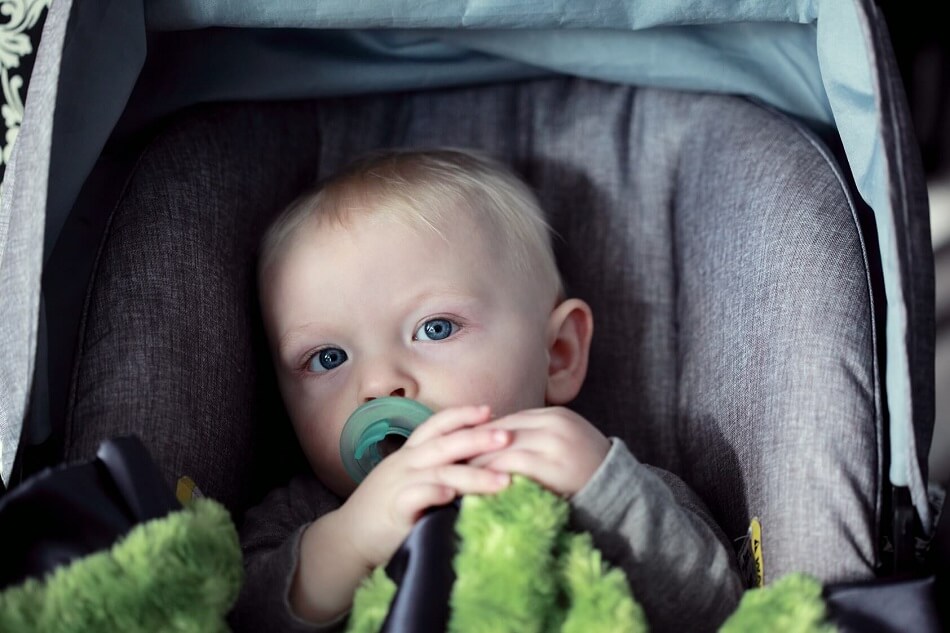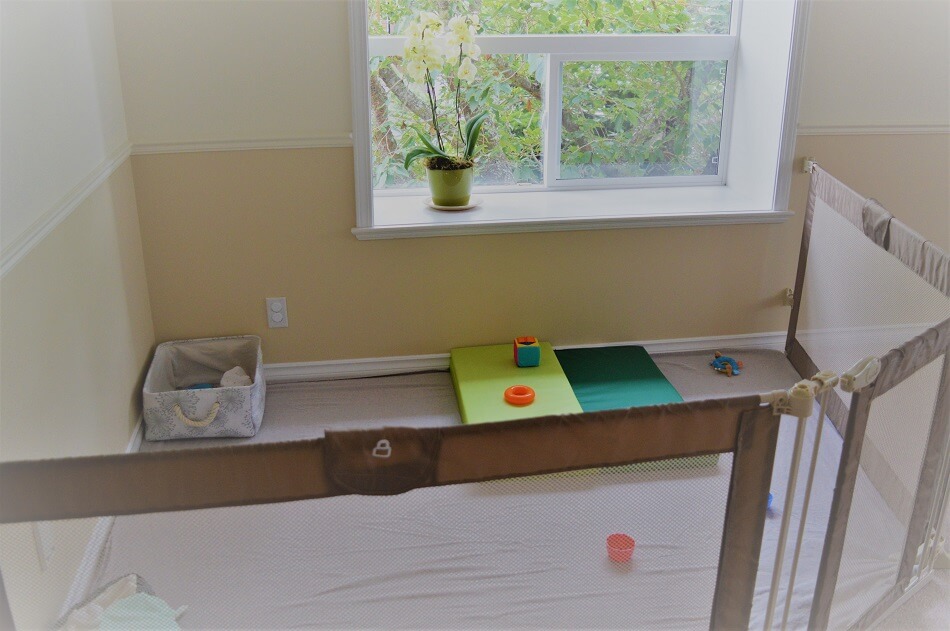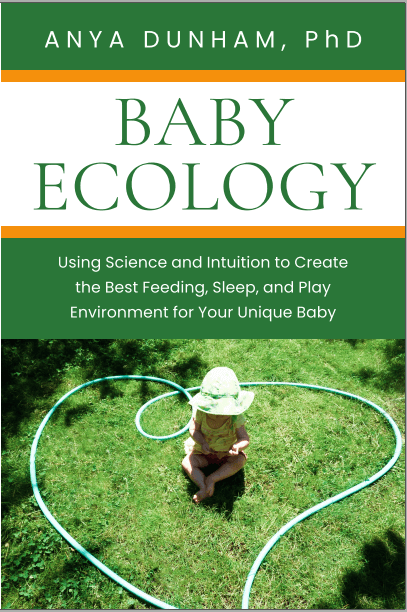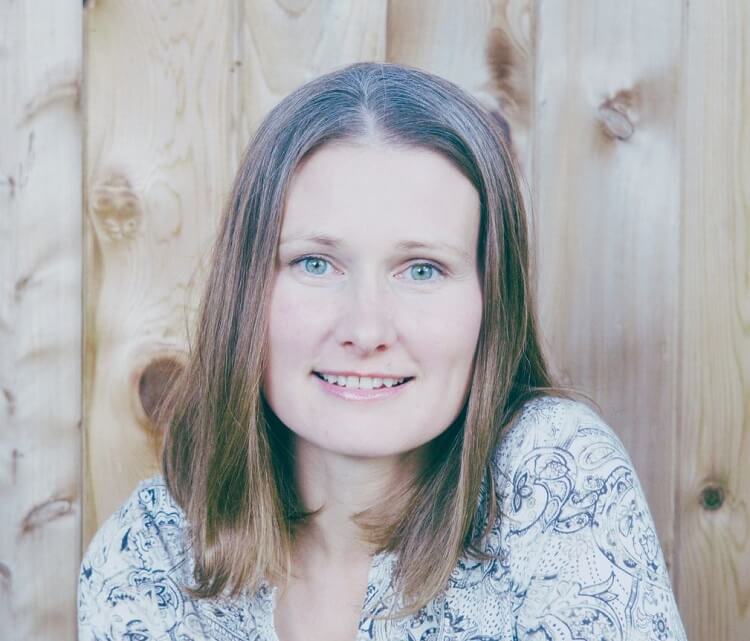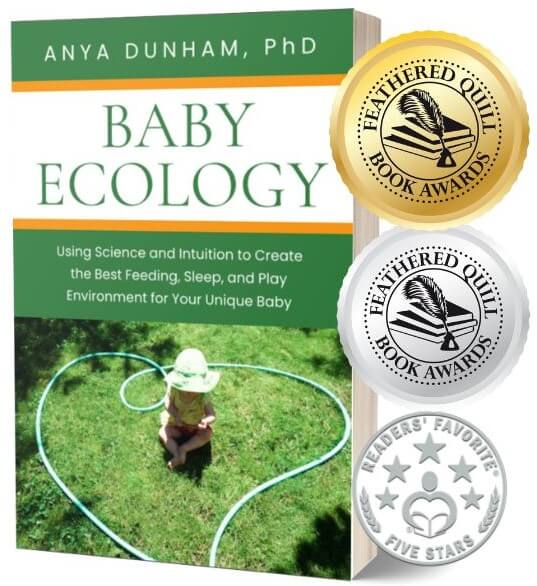Baby Ecology book is here! Learn more
Baby Ecology book is here!
- Home
- Baby activities
- DIY Play Area for Babies
- Independent play
Independent play for babies... but is 'independent' truly your goal?
by Anya Dunham, PhD
Everyone talks about independent play for babies and young children. But is our goal independent play or free play? And what is the difference?
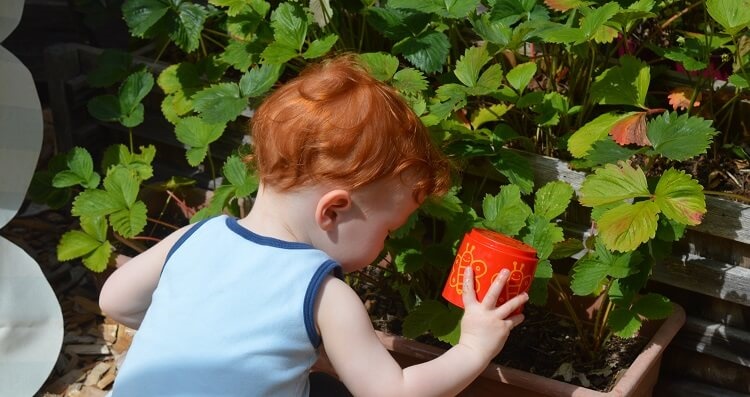
Independent play and free play seem to be a hot topic on social media and in online discussion groups. The terms “free play” and “independent play” are often used interchangeably, but they don’t necessarily mean the same thing.
The difference between free and independent play for babies and toddlers
- Independent play: Playing on their own, without adult involvement
- Free play: Play that is unstructured and typically child-led
In other words, free play can be independent – but it’s also possible for a child to play freely with a parent (or another person) present.
Some of the benefits of free play include children being able to fully explore their interests, discover patterns in the world around them, and practice paying focused attention. All of these can happen when we play with our kids, as long as we:
- Follow their interests
- Give them space and time to play
- Support their focus of attention (don’t redirect, don’t name objects or show them ‘how it works’ unless they ask us to)
If you worry about whether you're doing enough or doing the right things, or if your child is doing the right things, try pausing and asking yourself: "What matters to us? What are we trying to create or achieve?"
When you want to foster free play
If your goal is for your child to explore their interests, practice focusing, and discover new things as they play freely, setting up a free-play-friendly environment where your child can play independently OR with you is enough. You don't need to set up elaborate activities or rotate toys or sensory bins (although, of course, there is nothing wrong with that as long as you both enjoy it).
When more time for you is the goal
If you want more time for you to work, think, or just be (all totally valid and often much needed!), think about the ways to bring more of that in, but without the pressure of "fostering independent play". Independent play cannot, and should not, be forced. How much your child plays on their own will depend on their temperament, developmental stage, and needs and circumstances at the moment. They will show you what they need and what they are interested in.
One way I found to create more space for yourself when you don't have the option of having someone else care for your baby is creating a safe play area for your baby and then being 'gently occupied' nearby. what I mean by 'gently occupied' is doing an activity that you enjoy but that doesn't require moving in and out of the room and isn't too absorbing.
What worked well for us:
✔️ Cooking
✔️ Crafting
✔️ Just observing / being with your baby without any particular agenda (Magda Gerber called this "Wants Nothing Time")
What didn't:
✖️ Cleaning / organizing (too much movement in and out)
✖️ Reading / scrolling (parent looks and feels emotionally unavailable, almost in a still-face way)
Bottom line
Whether your main goal is fostering free play or making more space for you, try creating conditions for play and then taking the pressure off your child – and, importantly, yourself. Setting up a free-play-friendly environment and letting you child lead the way, joining them when they ask and when you want to, is enough. Better than enough, actually.
Here is are some ideas and examples of free-play-friendly spaces for babies: Setting up the yes-space.
Using hundreds of scientific studies, Baby Ecology connects the dots to help you create the best environment for sleep, feeding, care, and play for your baby.
Warmly,
Anya
